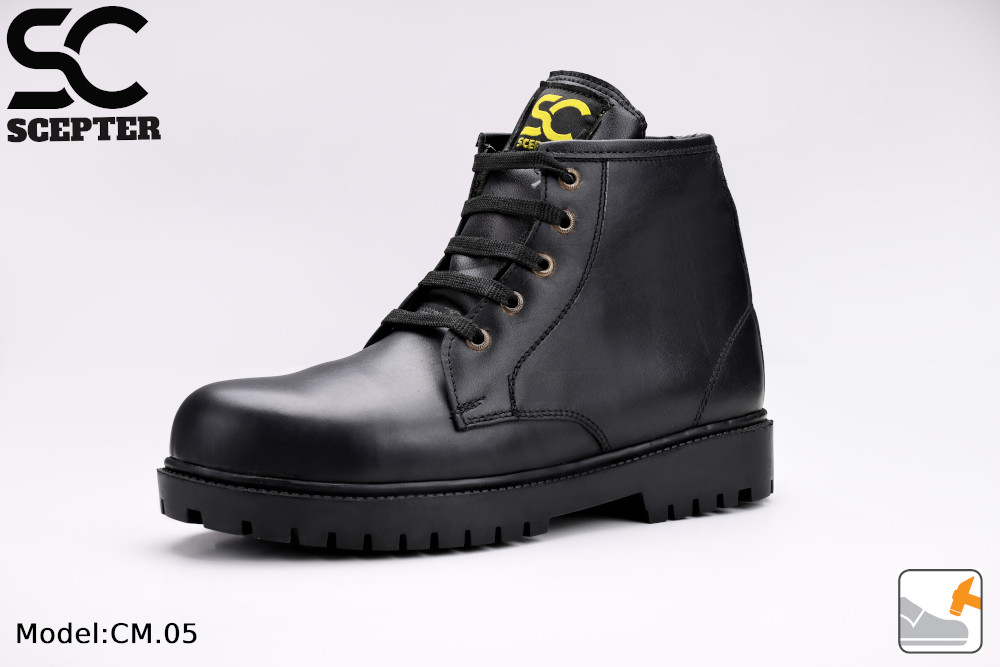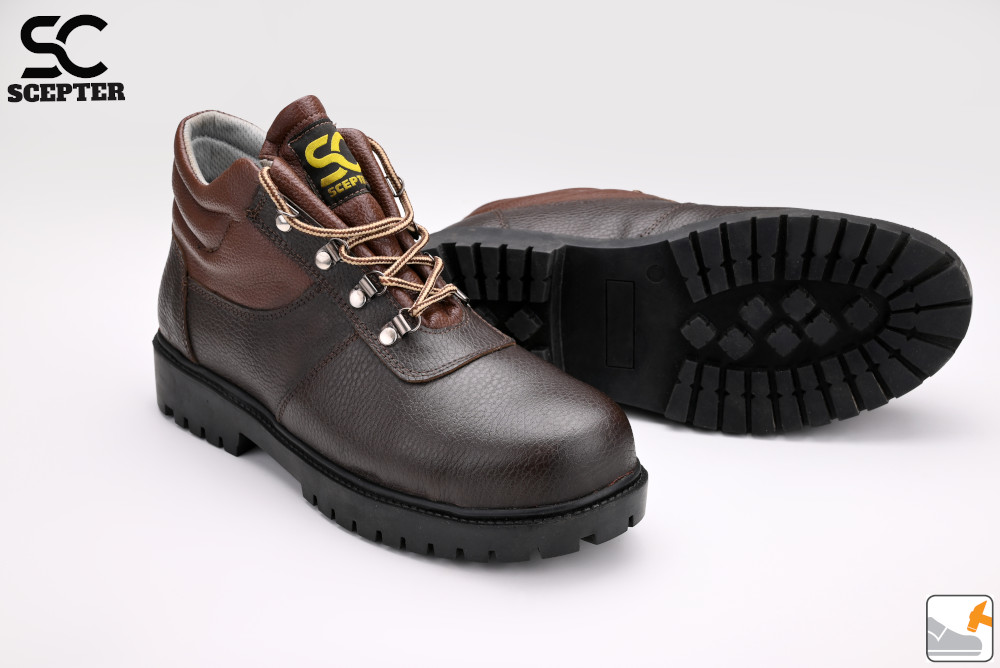Understand the nature of the work
Before starting to choose shoes, the worker or manager must understand the nature of the work and the risks associated with it. For example:
-
On construction sites, workers need shock-resistant shoes.
-
In factories, some jobs require non-slip shoes.
Materials of industrial safety shoes
The materials used in making safety shoes are one of the most important factors affecting their quality. It is preferable to choose shoes made of:
-
Genuine leather or waterproof synthetic materials.
-
Materials that provide protection against heat or chemicals if required.
Safety shoe sole type
You should choose shoes with an anti-slip sole , as:
-
A good sole helps reduce the risk of falling and slipping.
-
Some shoes come with a sole that provides extra protection against sharp objects.
Weight and comfort
The shoe should be light in weight and provide a high level of comfort. Heavy shoes can cause fatigue and exhaustion, while comfortable shoes provide:
-
Feel better during long working hours.
-
Proper foot support.
The right size
Choosing the correct shoe size is essential. Tight shoes can cause:
-
Long term health problems.
-
A shoe that is too wide may lead to instability during movement.
Compliance with standards
It is preferable to choose industrial safety shoes that comply with international standards and specifications, such as ISO or ASTM. These standards ensure a level of protection that is recognized worldwide.
conclusion
Choosing a good requires considering a set of conditions and criteria. By considering these factors, workers can enhance their safety and comfort while performing their tasks, which contributes to increased productivity and effectiveness at work. Choosing the right shoe is not only a step towards protecting the feet, but it is an investment in the safety and health of the worker.



